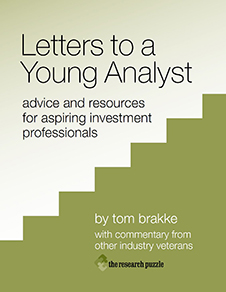
- Thursday, December 4th, 2008
- feeling the pressure
-
I recently read an entertaining story written by a friend who recalled the annual ritual of installing Christmas lights during his youth. He did a great job of evoking the process and the family tension that accompanied it.Of which he said, “Many times we could ride that wave of resulting tension all the way through Christmas, and in a good year even through New Year’s.” One saving grace was that his family farm was away from the main roads, and they were, therefore, less exposed to that human curse that we were supposed to have left behind in junior high school — peer pressure.
A part of his story reflected on how living on a gravel road saved his family from the pressure to perform (in the Christmas decoration derby) faced by those on the highways, to say nothing about that endured by those on the divided highway leading to the big city.
Such pressures follow us into all aspects of our lives, and are writ large in the investment markets. Whether we find ourselves on the trading floor of a major firm, at a conference, or with friends, we are always looking at what others are doing and trying to keep up with those who seem to be doing everything just right.
At times this activity becomes pervasive, one of the most recent examples being the clamor to copy Harvard and Yale in their endowment investment strategies. Cribbing from their papers seemed to make sense — they were the best and brightest, at the top of the class.
As I have written before,the research puzzle | In “i hired a guru” I mused about what we can learn from the market gurus that investors try to copy. studying the decisions of successful investors can be enlightening, but imitation has its dangers. This year, the desire to be like Yale or Harvard became a palpable obsession for many. The ideas, the allocations, and the investments of the great endowments were promoted breathlessly by the followers and, as at a pool party, everyone jumped in.
In September, I talked to the executive director of a nonprofit organization after a meeting, and she said, “I’m feeling the pressure.” I knew right away what she meant. Not only was she referring to the general movement of her counterparts to “alternative” strategies, but all of the federated organizations that she met with regularly had invested in a particular product, they were quite pleased with it, and those selling it had her in their sights. It wasn’t quite Twelve Angry Men, but you get the picture. What was unusual about this instance was that she verbalized her feelings; while the pressure is often what drives such decisions, it is rarely expressed.In this case, she had something of an easy out, at least temporarily. A new statement of investment policy was in the process of being crafted, and the product in question couldn’t be reviewed in advance of its completion.
Less than three months later, the pressures are of a different sort. To quote Kurt Vonnegut, “All that had changed was people’s opinion of the place,”World Beta | This site includes a longer excerpt from Vonnegut’s book Galapagos, which is worth your time. Mebane Faber deserves a hat tip for coming up with the reference. (On doing some touching up just before publishing this note, I realized that Faber was one of the authors of The Ivy Portfolio, truly an amazing and ironic coincidence given my topic. I have no knowledge of the book’s contents, so I can’t comment on it.) expressed in lower prices and a loss of enthusiasm for cutting-edge ideas. The philosophy that was embraced is now being questioned and even shunned. The same presentations that caused eager agreement are now met with averted eyes. Published reports say that the large endowments are among those that have alternative investments for sale at a discount.
For those charged with managing investment organizations or shepherding the selection of strategies and managers as a fiduciary, sorting out the “me too” mentality from the analytical process is tricky but essential business. When the pressure to conform intensifies and decisions become easy to make, it is often the worst time to play along.
There are a lot of benefits to living on a gravel road, where you can make decisions without worrying about what other people think.
